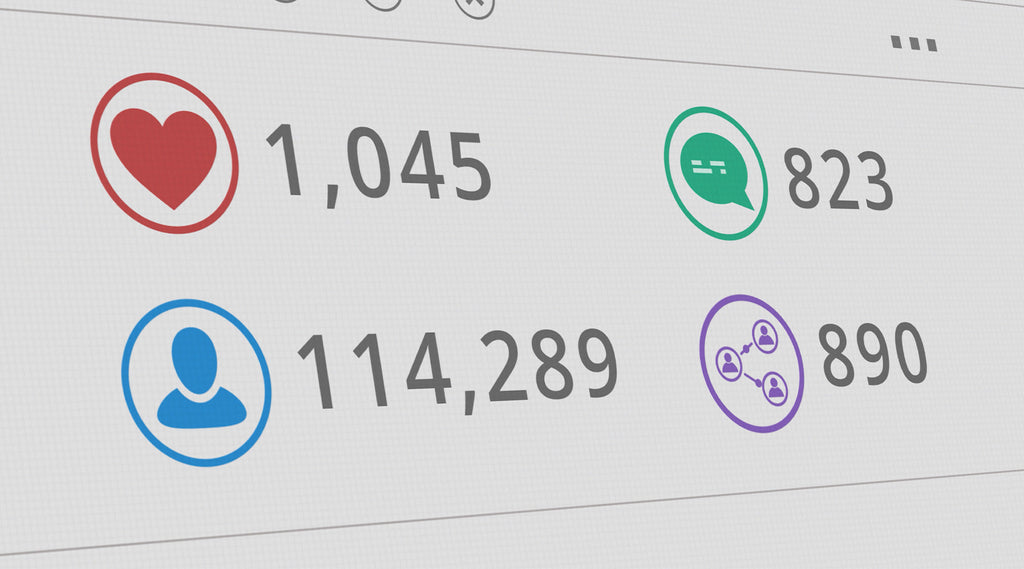
What Millennials Wished We Knew About Social Media

Social Media Wisdom for Gen Alpha
As the OG social media pioneers, we watched the internet transform from AIM chat rooms and MySpace top 8 to the hyper-connected, algorithm-driven world our kids are growing up in. Our generation didn't just use social media; we established the digital landscape our children navigate. With great digital power comes great responsibility and a lot of hindsight. Our parents mostly didn't take the internet seriously let alone know what it would become resulting in us having to explore and learn the digital landscape on our own for better or worse. Let's reflect on what we wish we knew about the early internet and what we can now provide our kids in the current social media landscape.

Early Social Media Experience
Remember when creating the perfect AIM away message felt like an art form? MySpace profile customization was our first taste of personal branding to the point where some of us contemplated a coding career. We were the test subjects of early social media, learning its nuances through trial and error. Our kids have no idea how much digital wisdom we've unknowingly accumulated through some seriously cringeworthy and sometimes horrifying online moments.
Lessons We Learned (The Hard Way)
-
Digital Footprints Are Forever
When we were teens, we thought our late-night blog posts and dramatic Facebook statuses would disappear into the void. Spoiler alert: they didn't. In some cases turning classmates into memes would result in bullying whenever the content went viral among classmates being saved and shared repeatedly. Our Gen Alpha kids must understand that everything they post creates a digital trail that can follow them for years and be dug up at any moment.
-
Online Validation Is Addicting
We all know how it feels to experience the first likes, comments, and shares on old bulletin and forum posts. We experienced firsthand how addictive digital validation can be. As the generation that invented social media influencer culture, we know the psychological impact of seeking constant online approval. We can teach our kids early that their self-worth isn't measured by digital metrics or how people perceive them online. -
Stranger Danger Online
Our generation learned firsthand that not everyone online is who they claim to be. We navigated chat rooms and early platforms where anonymity was the norm, often with naive curiosity. Unfortunately, some of us were too naive and learned the hard way. We had to be skeptical and never share personal information as a result. The internet's security has improved since, but the risks remain. We can teach our kids to be socially aware that connections aren't always genuine, no matter how convincing they might seem based on our experience. -
The Internet Isn't Reality
Early social media was popular because it was more relatable and authentic than the flashy sensational lifestyles of mainstream media. However, it didn't take long for the rise of carefully curated content that turned average people into influencers. With aesthetically perfect photos and strategically crafted captions to appease audiences, we know firsthand how different online life can be from real life. Our kids are growing up in an era of filtered influencers, where the perception of reality is warped. We can teach them that social media is a highlight reel, not a true representation of someone's existence. Behind every perfect Instagram post is a world of imperfection that doesn't make it to the screen. -
Fear Of Missing Out (From Reality)
What started as checking Friendster and MySpace snowballed into a constant stream of notifications and updates across multiple platforms over time. Constant connectivity can create anxiety when seeing everyone else's seemingly perfect moments can make one feel inadequate. We can reassure our kids that it's okay to disconnect, that real life happens outside the screen, and that true connections are made in person, not through likes and comments.
Teaching Our Kids What We Wish We Knew
-
Authenticity Over Perfection:
Unlike our kids' curated, filter-heavy social media experience, we remember being genuinely awkward online. We can teach them that unfiltered genuine moments bring people together naturally. They curate meaningful connections more than any viral trend made from staged theatrics ever will.
-
Critical Thinking in the Digital Age:
We survived the Wild West of early internet information. Our kids are growing up in an era of deepfakes, AI-generated content, and algorithm-targeted content. Our experience navigating early internet forums, dealing with anonymous trolls, and understanding source credibility is essential knowledge we can pass down. -
Mental Health Matters More Than Metrics:
As the generation that normalized discussing mental health, we understand the psychological impact of constant digital connectivity. We can help our kids set boundaries, recognize social media's narrow perspective, and prioritize real-world connections.
Millennial's Know Best
Our generation shaped what social media became. The irony is that we had to teach our parents how to use it as we learned and now we are tasked with teaching our kids. We're the original digital natives who understand the benefits and drawbacks of social media's impact on people.
Our kids are growing up in a digital world we helped create. By sharing our hard-earned wisdom, we're not just protecting them—we're empowering them to be thoughtful, critical, and authentic digital citizens. The internet isn't going anywhere. With our guidance, our kids can learn to use it as a tool for growth, connection, and creativity.



















